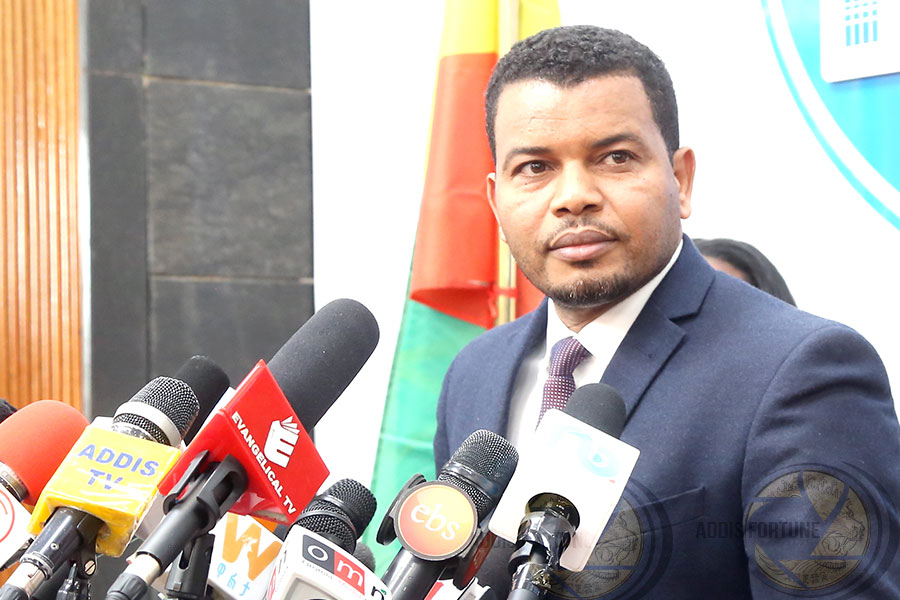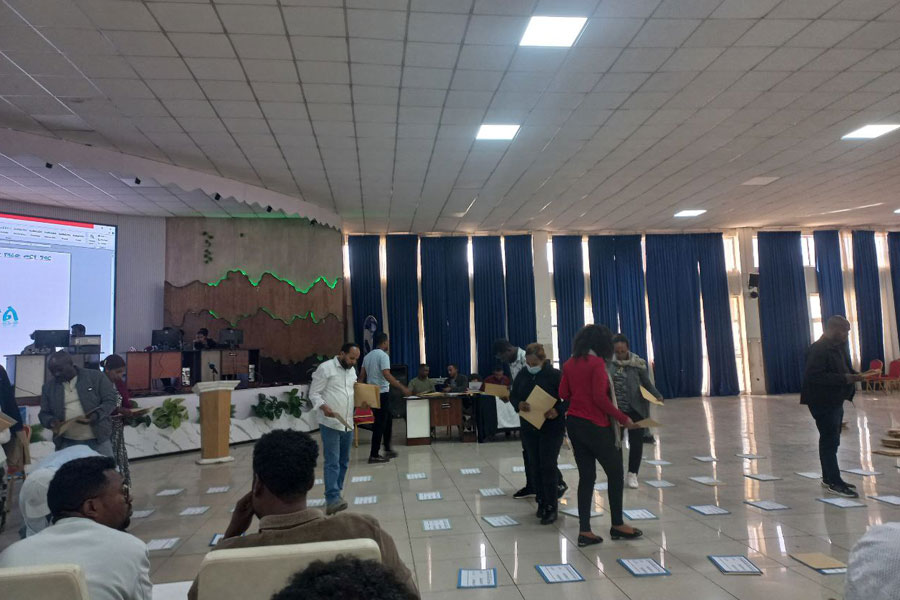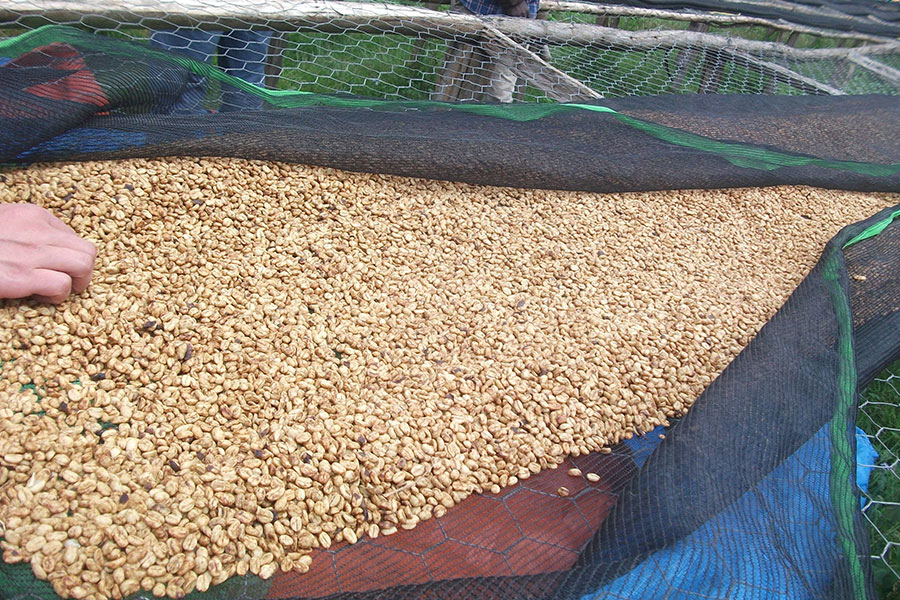
Fortune News | Aug 17,2019
Sep 28 , 2024.
In the early 2010s, Ethiopian authorities found themselves at odds with the International Monetary Fund (IMF). The Fund cautioned that the country's rapid economic expansion overheated the economy, igniting inflationary pressures that could undermine hard-won gains. Yet, buoyed by double-digit growth rates since 2004, even in the face of severe drought, Melesites dismissed the advice. They had little patience for lectures from an institution they viewed as a global neoliberal tool, especially when the economy was booming.
Financed largely by China's deep pockets, they pressed on with their ambitious infrastructure-led growth agenda. But even China, whose own meteoric rise had captivated the world, cautioned Ethiopia's leaders during a summit in Addis Abeba in the middle of that decade. Chinese officials urged their counterparts to learn from their missteps, particularly the regional disparities that had emerged between affluent coastlines and neglected hinterlands as well as urban and rural populations.
China's economic miracle is undeniable. It has lifted hundreds of millions out of poverty, reshaped global trade, and become a linchpin of international finance. Yet beneath the surface lies a persistent and deepening problem: regional inequality. Coastal metropolises like Shanghai, Shenzhen, and Beijing have flourished, transforming into global hubs. In contrast, interior provinces, especially in the western and central regions, have struggled to keep pace, suffering from inferior infrastructure, education, and public services.
The roots of this disparity can be traced back to the 1994 tax-sharing reforms, which redefined the fiscal relationship between China's central and local governments. Intended to spur growth by granting local authorities more autonomy and fiscal incentives, these reforms inadvertently cemented the dominance of already thriving coastal areas. Researches found that while the reforms prevented a further 15pc increase in inequality, they came at an eight percent cost to overall GDP growth.
In 2016, Jiangsu province boasted a per capita GDP of nearly 6,000 dollars, while Yunnan, in the southwestern interior, languished at three times lower. The central government's reliance on tax rebates and equalisation transfers, meant to balance regional wealth, has fallen short. Coastal regions, contributing the lion's share of national tax revenue, have been rewarded with generous rebates, enabling further investment in infrastructure, education, and technology. Despite receiving more equalisation transfers, provinces like Hunan and Yunnan remain stuck in a cycle of underdevelopment.
Local governments in poorer regions, facing fiscal pressures, have resorted to levying higher fees and non-tax charges on private firms. This approach discourages entrepreneurship and risk-taking, hindering growth and perpetuating disparities. The consequences extend beyond economics, causing social discontent and political instability, undermining China's vision of a harmonious society.
Ethiopia now appears to be heading to a similar crossroads. Despite an impressive annual GDP growth for over two decades, placing it among the world's fastest-growing economies, Ethiopia's growth masks a troubling reality of regional disparities fuelled by political uncertainties and militarised conflicts. Relatively affluent regions, notably Addis Abeba and its environs, have thrived due to their proximity to international presence.
These areas have become industrial and service hubs, attracting foreign direct investments and benefiting from government-backed industrial parks. Remote and less accessible regions remain tethered to agriculture, a sector that, despite being the economy's backbone, suffers from low productivity. Centralised development strategies have historically concentrated wealth and public services in urban centres, and attempts at decentralisation have been poorly coordinated and inefficient.
Infrastructure inadequacies exacerbate these disparities. Rural regions lack the roads, telecommunications, and electricity necessary to connect them to markets and stimulate economic activities. In the Somali and Afar regional states, reliable power is scarce, stifling industrial potential and leaving communities reliant on subsistence farming.
The regional disparity in the social service sector such as education is more pronounced. In urban centres like Addis Abeba and Harari, pre-primary gross enrollment rates (GER) were near-universal, at 97.6pc and 91.2pc, respectively. However, rural and underserved regional states such as Afar and Somali tell a different story, recording 12.9pc, and a mere 7.9pc, respectively. The situation does not improve at the primary level. The national Grade one dropout rate increased from 19pc in the 2013/14 academic year to 25pc in 2017/18, missing the target of reducing it to five percent by 2019/20. The Afar region glaringly illustrates these problems. Its primary education GER plummeted from 70.3pc in 2014/15 to 57pc in 2018/19, falling far short of the 98pc target.
These pastoralist communities often lack the facilities and trained personnel necessary for effective pre-primary programs. Factors such as socio-economic pressures, absence of school feeding programs, inadequate infrastructure, and schooling costs disproportionately affect children from impoverished families, making early dropout more likely.
The human cost is substantial. GDP per capita in some rural regions is less than half that of Addis Abeba. According to a recent report by the IMF, on average, real GDP per capita in the leading regions is 70pc higher than in its lagging ones. Such disparities fuel migration to urban centres, leading to rapid urbanisation that is evidently straining the city infrastructure and depopulating rural areas, deepening poverty.
The social implications are equally grave. Economic marginalisation has contributed to political unrest, particularly in regions like Oromia and Amhara. The IMF warns that if left unchecked, regional disparities could exacerbate political polarisation, threatening national cohesion and stability. Economically, the economy suffers from inefficiencies by concentrating wealth and talent in a few areas, missing out on the potential contributions of its rural regions.
These could be a realisation behind the federal government's initiative to raise funds from the private sector, particularly the financial industry, to undertake corridor development projects in areas like Wollega, in the Oromia Regional State.
On the surface, such projects seeking to enhance public infrastructure seem commendable. After all, the Wollega Zone is rich in resources, as it is fertile agricultural land. It is a source of major export crops like coffee, spices, and honey, with abundant livestock and vast mineral deposits, including gold, platinum, iron ore, coal, granite, and marble. Development could unlock this potential, attracting domestic and foreign investors alike.
This could be part of a targeted investment project that leverages regional comparative advantages such as agriculture and agro-processing to revitalise the rural economy. However, the initiative has raised eyebrows on several fronts: value for money, inclusivity, and the absence of enduring peace.
Critics question the transparency in selecting Wollega over other towns and regions equally in need of development. Unclear policy treatment that appear to favour one area while neglecting others could undermine national cohesion. Some cities would undertake corridor development independently, while others are partnered, but the criteria for these decisions remain opaque.
The area has faced various issues, with investments often abandoned due to instability. Security concerns loom large that foreign investors have left after losing equipment, and federal security forces, after a brief presence, have withdrawn, leaving projects vulnerable. Ensuring security is paramount before committing substantial resources. Investments, particularly those funded by the private sector, should not be squandered or subject to waste.
Value for money is a critical consideration. Funders should be vested in the feasibility and success of projects, as these investments impact their balance sheets. Previous initiatives, such as "Gebeta Le Hager," which encompassed multiple regions, lacked clarity on investment returns, fuelling scepticism.
Lessons can be drawn from other economies where political, financial, and industrial capitals are designated by design, promoting balanced development. Regional economic disparities can be addressed by providing amenities and opportunities across various cities, and national cohesion can be strengthened. Fiscal policy reforms are essential to ensure that the wealth generated in urban centres is effectively redistributed. Increased public investment in education and healthcare in rural areas would boost human capital and productivity, laying the groundwork for sustained growth.
Transparent and inclusive planning involving all parties can ensure that projects are feasible and beneficial. Consensus among stakeholders, including financial contributors, is vital. Investments should not be demanded without regard for funders' financial stability and performance considerations..
PUBLISHED ON
Sep 28,2024 [ VOL
25 , NO
1274]

Fortune News | Aug 17,2019

Fortune News | Nov 16,2024

Commentaries | Jul 20,2019

View From Arada | Jul 20,2019

Fortune News | Jun 13,2025

Featured | Apr 22,2022

Commentaries | Jun 03,2023

Radar | Mar 16,2024

Viewpoints | Apr 17,2020

Commentaries | Jan 13,2024

My Opinion | 131970 Views | Aug 14,2021

My Opinion | 128359 Views | Aug 21,2021

My Opinion | 126296 Views | Sep 10,2021

My Opinion | 123912 Views | Aug 07,2021

Dec 22 , 2024 . By TIZITA SHEWAFERAW
Charged with transforming colossal state-owned enterprises into modern and competitiv...

Aug 18 , 2024 . By AKSAH ITALO
Although predictable Yonas Zerihun's job in the ride-hailing service is not immune to...

Jul 28 , 2024 . By TIZITA SHEWAFERAW
Unhabitual, perhaps too many, Samuel Gebreyohannes, 38, used to occasionally enjoy a couple of beers at breakfast. However, he recently swit...

Jul 13 , 2024 . By AKSAH ITALO
Investors who rely on tractors, trucks, and field vehicles for commuting, transporting commodities, and f...

Jul 6 , 2025 . By BEZAWIT HULUAGER
The federal legislature gave Prime Minister Abiy Ahmed (PhD) what he wanted: a 1.9 tr...

Jul 6 , 2025 . By YITBAREK GETACHEW
In a city rising skyward at breakneck speed, a reckoning has arrived. Authorities in...

Jul 6 , 2025 . By NAHOM AYELE
A landmark directive from the Ministry of Finance signals a paradigm shift in the cou...

Jul 6 , 2025 . By NAHOM AYELE
Awash Bank has announced plans to establish a dedicated investment banking subsidiary...